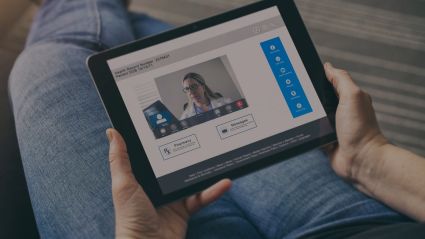
Living out our days through web browsers, news feeds, and Zoom calls has laid bare the industrialized world’s reliance on technology to operate our coronavirus-affected society. Tech runs our businesses; maintains personal connections during shelter-in-place; and delivers our medicine, food, and banking. Isolated screen time shapes our mental health and hours worth of many children’s lives now stuck at home.
The major tech platforms have become the social fabric by which we live and think. They increasingly control the digital infrastructure that now serves as the intermediary to human sense-making: They shape the information environment that helps us understand the pandemic, frame our elections, tune our children’s education, and influence our mental health.
Just as the coronavirus forced our economy to suddenly deal with millions of unemployed and just as a private health industry is forced to deal with a public health crisis of historic proportions, so too are private tech platforms forced to adapt, with billions of people now unavoidably relying on them to make sense of the world.
Our reliance on their information is now a matter of life and death. Misinformation online has real-world consequences. In the developing world, a hoax claimed India had banned coronavirus social posts, and in the US, 13 percent of people thought coronavirus was a hoax during the critical weeks where earlier notification to shelter-in-place would have saved thousands of lives. Tech platforms have an ability through their persuasive techniques and microtargeting to influence the behavior of society in ways traditional media can't.
The pandemic gives us a chance to convert online lawlessness into humane and regenerative technology.
This is concerning at many levels. We’ve allowed tech platforms to quietly become the intermediator of reality and our information environment, wielding power over our actions and beliefs. While we need these companies to operate for the public good, history has shown that they routinely prioritize growth and engagement over the public interest. Their business models have prohibited them from prioritizing this except in cases of enormous emergency and crisis.
They publicly shirk from taking responsibility for their power under the guise of neutrality. Until now, platforms have often hidden behind the fiction that tech companies only build the tools and are reluctant to weigh in on some of the most egregious content, even when faced with sobering statistics of their harms. For example, in more than 70 countries, disinformation campaigns via social media manipulation have been used to undermine elections, swing referendums, and elect quasi-dictators. And yet, Facebook has refused to enforce the veracity of political ads.
Now is the moment for tech platforms to step into the public responsibility that the present emergency demands.
This emergency can catalyze a fundamentally new approach to technology. It starts with social media platforms abandoning the myth of neutral metrics and engagement optimization, focusing instead on how their vast reach and already existing capabilities can support the public interest—effective public communication of the truth that would save millions of lives, prioritizing means for more efficient mutual aid, supporting frontline health workers and other crisis responders.
This is a chance to change the DNA of technology platforms—for them to truly serve users and society instead of delivering mass behavioral modification in the service of commercial interests that hollows out humanity’s capacity to make good choices for the future. COVID-19 response could be a critical turning point.
The good news is that coronavirus is starting to create a shift among some tech platforms to operate in the public interest. Now that the veil of tech neutrality is being lifted, it shows that when the platforms do step up, they can create a world that supports our shared well-being, sense-making, democracy, and ability to tackle complex global challenges.
The pandemic gives us a chance to convert online lawlessness into humane and regenerative technology. It’s time for technology companies to change their legacy and prove how much good they can do when they operate for the common good of humanity, saving lives.















